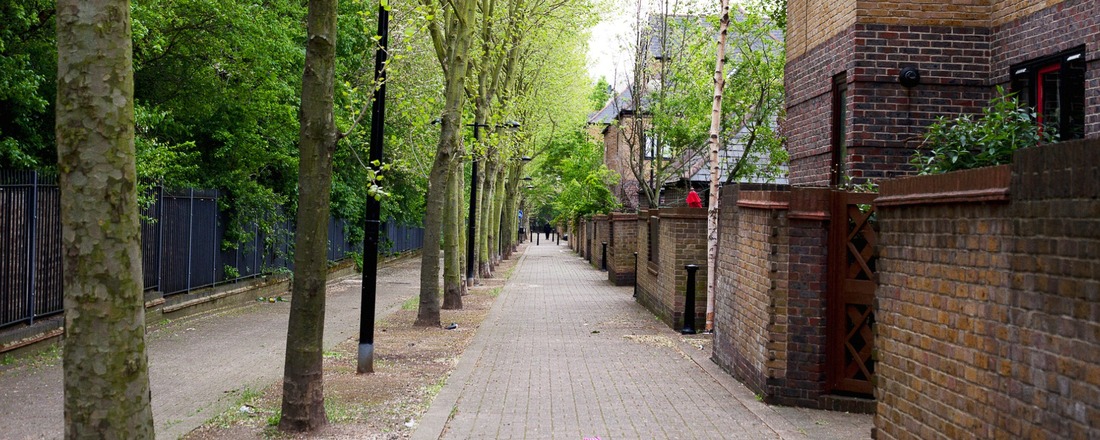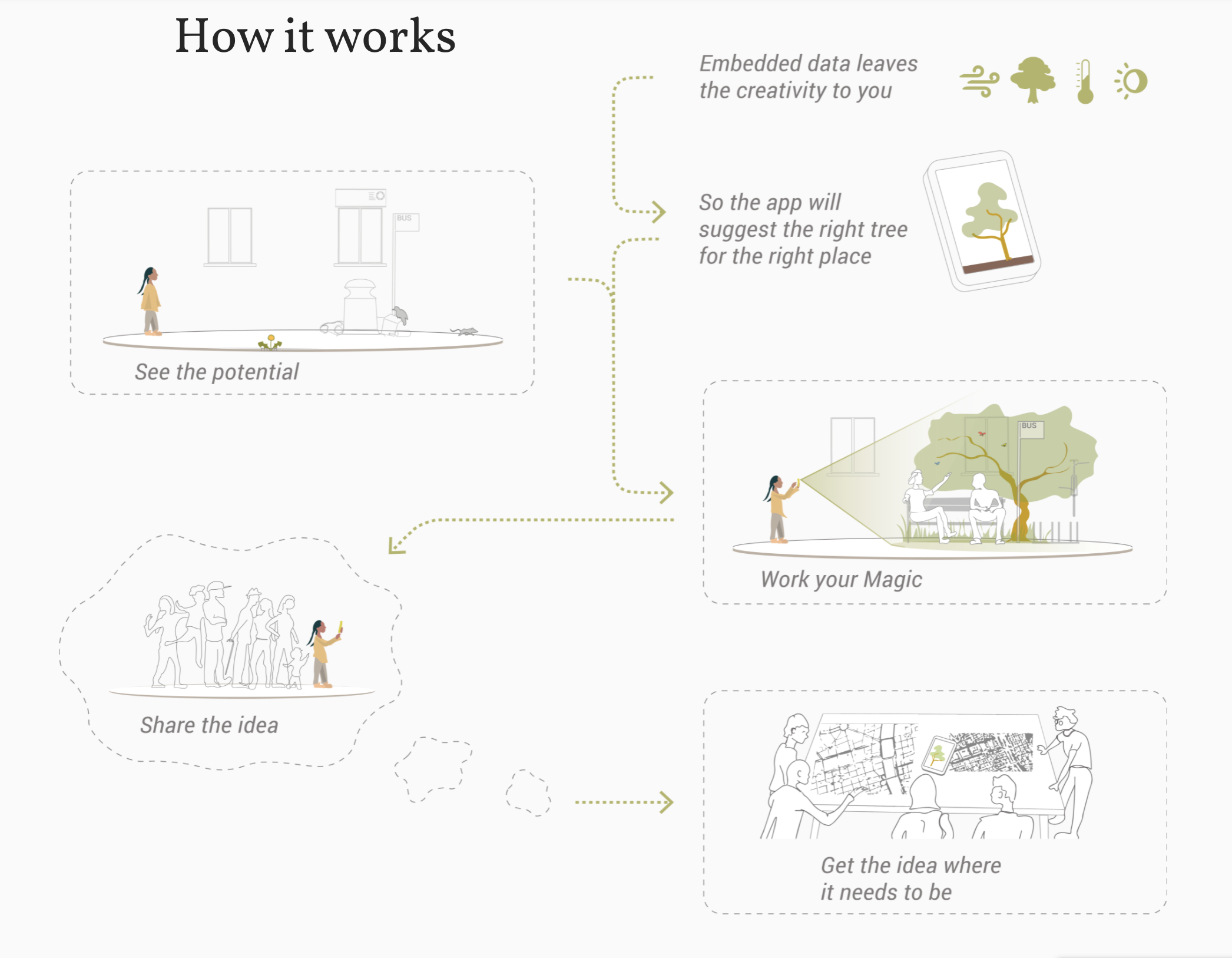Get updates from The Developer straight to your inbox Yes, please!
“We hope to get people's unfiltered opinions” – Ascha Lychett Pedersen
How can we empower citizens to reimagine our cities as greener places? That’s the question Ascha Lychett Pedersen is addressing with the development of her app Wild Streets

This week’s episode of The Developer Podcast was supported by IE University School of Architecture and Design
I magine adding a few trees to your street, a public space, a few benches, maybe a bike rack.
You may find it easy to envision your urban transformation, or know who to call to sketch it up. But how can the non-professional citizen participate in the design process on an equal footing?
That’s the question Ascha Lychett Pedersen is answering with her big app idea, Wild Streets.
A macroeconomist and UN sustainability specialist, Lychett Pedersen, CEO of Wild Streets, had been working for the UN for a decade when she got the idea that would become Wild Streets.
“I’d been working on top-down policies for the UN about how to achieve inclusive green industrial growth, and I wanted to take a bottom-up approach instead – it’s something I’m really passionate about.”
Listen to the interview
Lychett Pedersen noticed how the more affluent areas of London seemed greener than impoverished neighbourhoods, “the grey”. What did the residents of these places want, and how could they actively participate in the conversation about inclusive greener spaces?
She started thinking up a digital tool, one that would “put green placemaking in the hands of users with no laptops needed. Something that lets them place elements into their neighbourhoods in real time.”
“In some ways, the app is a low-hanging fruit. It seems obvious yet no one had seen the opportunity,” says Lychett Pedersen, who has spent a lot of time developing Wild Streets in conversation. “We talked to London National Park City, C40 Cities, Arup, the Landscape Institute, Manchester City of Trees…”
The Wild Streets concept is simple – point your camera at an urban space, add some realistic street furniture, trees, bike storage and take a selfie or share a picture.
At the same time, the app is backed up with data on the impact of your choices – how that tree cleans the air on your street, changes the temperature, prevents flooding, maybe even prolongs your life.
“We have realistic 3D trees and equally realistic street furniture that will allow people to green their space no matter where you are in the world in real time.”
It sounds fun, but also packs a lobbying punch: Wild Streets will collect aggregated anonymised data about its users and their ideas – data that can be used as political leverage.
“We collect not only what people visualise, but also their demographic profile. We ask permission to access their social media information and hope they will share more with us so that we’re able to make that interesting cross-referencing to find out what they actually want from their neighbourhoods.
“Are they a single mother of three children? Are they elderly? What ethnicities do they have? Are they a youth? There’s so much to understand in order to make truly inclusive spaces.
“At the UN, you are an academic surrounded by profound intellects with [research] experience and those with vast on-the-ground experience – those two don’t often talk together.
“A huge mission of ours is to achieve something that is non-exclusionary... we hope to get people’s unfiltered opinions. It’s about being able to design your own environment.”
The app is currently seeking funding, but Lychett Pedersen hopes it will launch in the UK in 2022, with plans to evolve into other markets over time.
If ordinary people can create realistic augmented-reality visualisations – currently the preserve architectural renderings – they can tell a more compelling story about the changes they want to see
“You may go City Hall and see some lovely posters about what your neighbourhood will look like, but it often doesn’t turn out that way. It’s often different when you experience it in real life.
“We’re hoping to get people on the street, in the comfort of just being themselves, with no pressure, to get that unfiltered processing: ‘What is it that I want?’
Lychett Pedersen also believes Wild Streets democratises placemaking by providing easy access to a powerful design tool. If ordinary people can create realistic augmented-reality visualisations – currently the preserve architectural renderings – they can tell a more compelling story about the changes they want to see to neighbours, politicians and at planning meetings.
She also hopes Wild Streets will challenge their imagination. “We’re often trapped in our everyday life – we can’t imagine our street looking like anything else.
“We want to challenge them with some presets that they can place and experience and have a reaction to, and maybe they’ll learn more about themselves as well and what they want. That’s the user journey we’re hoping to kickstart.”
Listen to the interview
--
Sign up to our newsletter to receive our content in your inbox and find out when new episodes go live
This week’s episode of The Developer Podcast was supported by IE University School of Architecture and Design
Sign up to our newsletter
Get updates from The Developer straight to your inbox
Thanks to our organisation members
Become a member
© Festival of Place - Tweak Ltd., 124 City Road, London, EC1V 2NX. Tel: 020 3326 7238

